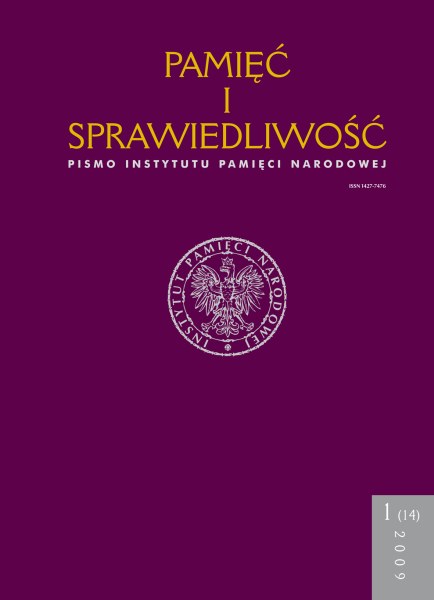Polityka ludnościowa w Generalnym Gubernatorstwie: polityka narodowościowa wobec Żydów i polityka osadnictwa a inicjatywy regionalne i centralne
Pamięć i Sprawiedliwość, Tom 14 Nr 1 (2009), strony: 155-175
Data publikacji: 2009-12-30
Abstrakt
Population policy (also biopolitics) is the interlocking of planning, resettlement and control of sociotechnical interventions in the structure of a society, either through a birth and family policy, through controlled migration, nationality policy or through a spatially differentiated development of infrastructure. On the basis of the comparative research on genocide by Raphael Lemkins, the present article describes the National Socialist population policy with regard to the General Government in the context of the competing Berlin (Heinrich Himmler), Cracow (Hans Frank) and regional (Odilo Globocnik) interests. Simultaneously, it analyses the biased preferential treatment of the Ukrainian minority, the mass murder of the Polish intelligentsia, the plans and implementation of the genocide of European Jews in the Lublin District, the epidemic-containment policy in the Warsaw Ghetto, the failed extension of the genocide policy with regard to the Polish majority in Zamość in 1942/43 and its antecedents in the Wartheland (Z-Aktion/subsistence farming) as cases of „negative” and „positive” population policies. In contrast to the perspective focused on the Generalplan Ost, this article emphasises the regional initiatives. In the context of the resettlement and extermination policy, the chief of police and SS in the Lublin District, Odilo Globocnik is not regarded as the antipode of Hans Frank and his civilian administration but rather as a radicalising power that, both through cooperation and competition, radicalised the scope of resettlement and extermination policy.
 Język Polski
Język Polski
 English
English
 Deutsch
Deutsch
 Français (France)
Français (France)
 Italiano
Italiano
 Русский
Русский


 PDF
PDF
